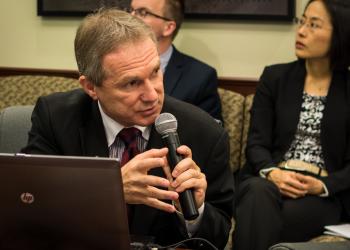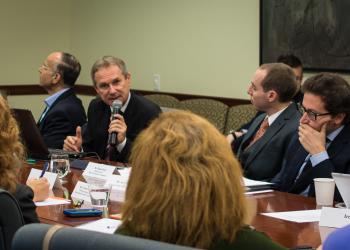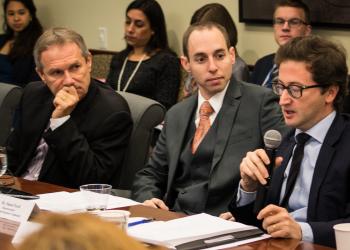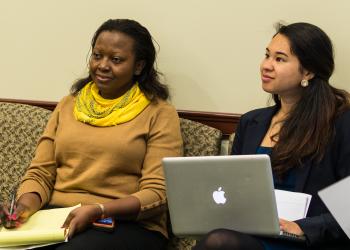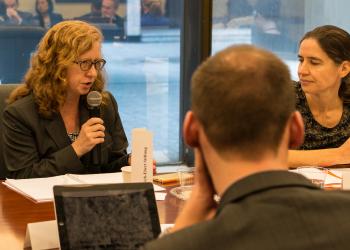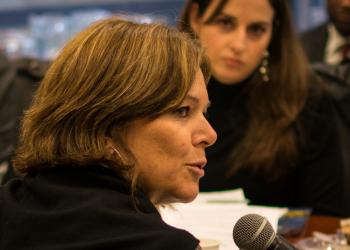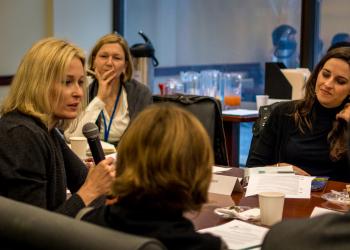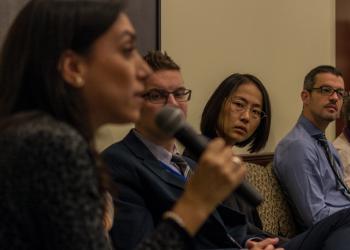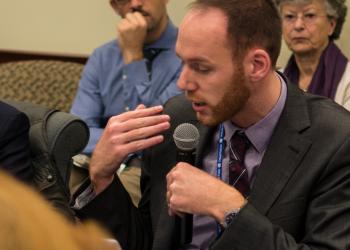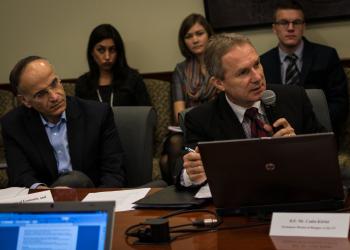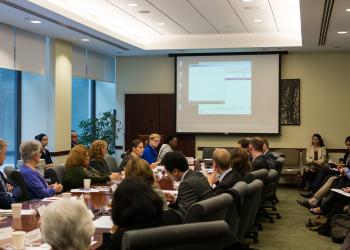SDGs will require global transformation, with civil society a key change agent
Implementing the post-2015 development agenda will require a profound transformation in our global mindset – and civil society organizations are among the best positioned to inspire that kind of change.
That was among the themes to emerge from a breakfast meeting held 29 October 2014 at the offices of the Baha’i International Community on civil society participation as it relates to the post-2015 agenda.
“We are talking about a profound transformation of society,” said Csaba Kőrösi, permanent representative of Hungary to the United Nations, one of the meeting’s two keynote speakers, referring to the sweeping new proposed Sustainable Development Goals (SDGs), now under discussion at the UN as a replacement for the soon-to-expire Millennium Development Goals (MDGs).
Ambassador Kőrösi said that while technology has facilitated such transformations in human society in the past, setting SDGs is different because of its deliberative process.
“We have never tried to design the process in the course of the development of human history,” said Ambassador Kőrösi.
To implement the proposed SDGs, which range from “ending poverty everywhere” to “ensuring sustainable consumption and production patterns,” new coalitions and institutional mechanisms will be required, said Ambassador Kőrösi.
“You were the first among all stakeholders, to recognize that we need a transformation,” he said. “A transformation that will start in minds.”
Joe Colombano, a senior officer and economic advisor in the Executive Office of the UN Secretary General, said civil society plays a key role in providing an outside perspective – and a level of passion – to the SDG deliberations and subsequent implementation.
“It is the main responsibility of the international community to listen to these voices to ensure we leave no one behind,” said Mr. Colombano.
The meeting was the 20th such effort to bring together diplomats, UN officials and NGO representatives in an informal atmosphere to discuss topics related to the post-2015 development agenda.
Like past meetings, it was co-sponsored by the BIC and International Movement ATD Fourth World.
Other points that emerged from the meeting included:
- Civil society organizations must be innovative, relevant and critical. They should seek to promote an integrated, universal and evidence-based SDG agenda. “Don’t mistake sound-bites for substance,” said one participant. “We must be communicating effectively and substantively.”
- People are rising up and acting in their own agency. They are not as concerned about voices being heard as their needs being met. They are saying that the institutional set-up is broken at all levels.
- To what degree do civil society organizations represent the will of the people, in contrast to a government that has been elected by the people? Others noted that there is a common struggle that member states, the UN, and CSOs all share in terms of representation, legitimacy, and how to interact in today’s interconnected world.
- There may be a point at which UN Member States will close the meetings on their deliberations on the SDGs next year. Efforts should be made to promote goodwill on all sides so as to avoid that problem.
Full notes from the meeting can read here.
